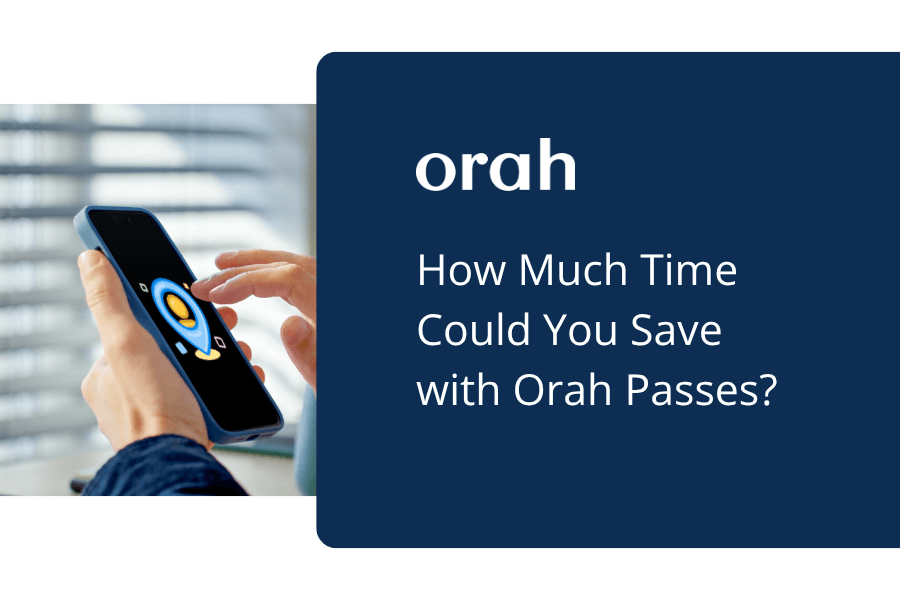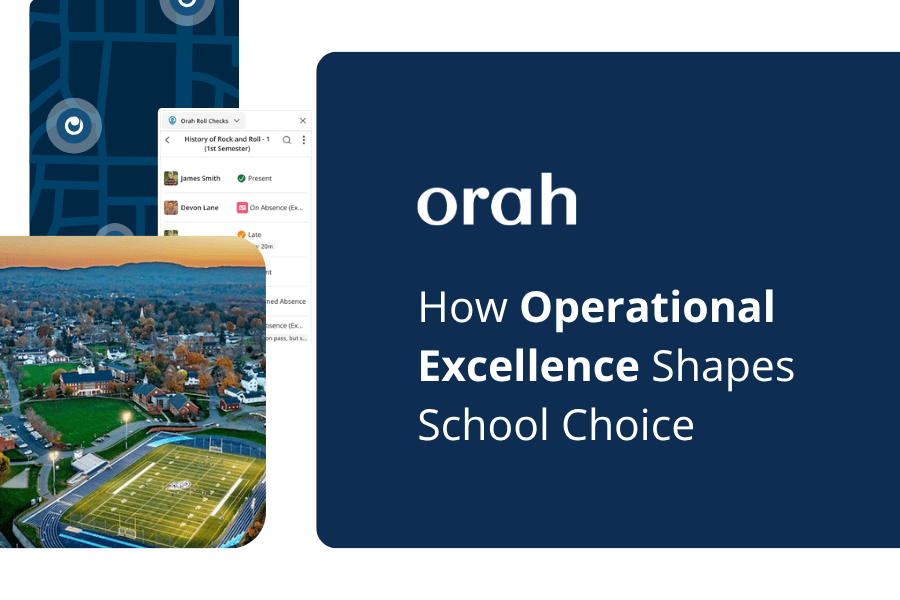5 Step Strategy To Care For The Whole Child
Vincent Paget
•
September 21, 2017

Research and best practices all confirm that students require a "Whole Child Approach" in education to be fully prepared for the demands of the 21st century.This means addressing the needs of the whole child. So while academic achievement is important and necessary, you also need to consider their physical, social, emotional and cultural needs.The Association for Supervision and Curriculum Development (ASCD) are leaders in the whole child initiative and believe that the key to this approach is “ensuring each child, in each school, in each community is healthy, safe, engaged, supported and challenged”.ASCD have also mirrored their 5 tenets - healthy, safe, engaged, supported and challenged - to Abraham Maslow’s hierarchy of needs, which places a student’s physical and emotional safety at the foundation of the whole child development.

But this is nothing new. Especially for pastoral and boarding staff who regularly deal with issues such as homesickness, bullying and mental health.They understand that if these issues aren't addressed properly, they will affect a child's academic progress and overall development.However, finding a way to effectively apply a “whole child approach” to every child has proven to be a challenge for many schools and is one of the reasons why working in boarding is one of the most complicated and demanding jobs you could ask for.Outdated tools, underutilized human resources and inefficient processes are all preventing schools from providing a high standard of physical and emotional care for their students.So the question is, how can schools work more effectively and sustainably to fulfil our duty of care for every child?
The Key To Working Effectively
Your ability to provide timely and effective support comes down to how well you know the children in your care.The more you know and understand how they behave, the better position you will be in to anticipate and identify any issues that may require your support.
But how are you supposed to gain a deep level of insight for every child in your care?
It’s simple. By recording and sharing information.
In boarding, you are most effective when you’re spending time and interacting with your students.But finding time to serve every child can be tough. Especially when you’re buried in paperwork and not informed about your students wellbeing.
However, with effective communication and information sharing, everyone in your boarding team will be on the same page. This gives your boarding and pastoral staff a greater level of insight into every student. So you can make smarter decisions to identify who needs support, maximise interactions and deliver a high standard of care for every student.
Defining A Methodology
Now that we have identified that recording and sharing information is key to your success, how then can we systemise the process of capturing and handling information, so you can effectively fulfil your duty of care for every child.
After working with hundreds of boarding schools and speaking with countless pastoral and boarding staff from around the world, we’ve developed a methodology to help you do just that.

We developed this methodology to transform the chaos of traditional boarding management practices into a simple step-by-step process that anyone can use to care for the whole child and enhance the physical and emotional safety of their students.Here is a brief overview of each step:

Step 1: Collect The Right Information
The first and perhaps most important step of the process is to make sure you are collecting the right information. What information do you need to keep track of your students physical and emotional safety?Taking the time to define exactly what information you need will help to improve your effectiveness when it comes to actually taking action.Here are two of the most important types of information every school should be tracking:
Student whereabouts.
Keeping track of where your students are at all times will allow you to effectively monitor their physical safety. Collecting this information involves two key processes:
- leave/exeats when students leave school grounds and
- sign-in/out activity on school grounds.
Check out our eBook: “The Definitive Guide To Leave Types and Best Practices” to learn more about how to collect and track information about your student’s whereabouts.
Student Behaviour.
Keeping track of your students behaviour will be incredibly valuable when it comes to providing emotional support. Collecting this kind of information can be managed by keeping track of pastoral records for certain activity such as disciplinary incidents, medical issues, academic achievements etc.
David Pyman has also shown that surveys are another effective way to collect information about your students behaviour and wellbeing.
David is a boarding professional who initiated a program to get “insight into [students] mental wellbeing in a manner that fit with their technologically addicted generation.”
You can read more detail about his process and results in his Linkedin article here.

Step 2: Consolidate and Share
Once you have a way of collecting information, the next step is to share that information with your team. By keeping everyone in-sync, you can work more efficiently and collectively as a team when caring for your students.There are a couple ways you can achieve this. You could use spreadsheets, a bulletin board or a cloud solution like Boardingware to organise your information. But whatever tool you decide to use, there are 3 key things you must consider when sharing information:
- Consistency. It’s important to make sure that everyone is working off the same set of information. Otherwise, your staff will be left confused, out of sync and more likely to make mistakes. Consolidating all your data into one place will help to keep everyone on the same page and working effectively together.
- Accuracy. The second thing to remember is to make sure that your information is regularly refreshed and updated. You don’t want your staff working off information that isn’t accurate and out-of-date.
- Privacy. Your student data is private and it’s important to ensure that it is protected at all times. Strict data protection laws mean that only people with permission are able to view your student’s sensitive data. So it's important to have secure processes in place to protect your data from any external threats.

Step 3: Monitor Physical Safety
Boarding standards for most countries require you to know the whereabouts of students in your care at all times (or at least know how to find their whereabouts).This would normally be a worry for schools but if you’re recording the correct information and sharing it with your boarding staff, keeping track of your students suddenly becomes a lot easier.However, having access to this information is only part of your responsibility. It's just as important to be actively monitoring your students movements.Tools for monitoring physical safety include:
- Roll checks. Taking roll checks is a quick and simple way for you to account for your students and make sure they are where they’re supposed to be. They help to identify unexplained absences and are a necessary tool to account for your students in emergency situations.
- Leave schedule. It’s important to always be aware of your students movements throughout the day. With a leave schedule, you can keep track of where everyone is going and when they’re coming back. Making it easy for your to stay on top of your checks and balances.
- Alerts and notifications. Advanced technologies like Boardingware can automatically notify you of important events like when a student has signed out or is late to return, so you can instantly take action where needed.

Step 4: Support Emotional Needs
You’re on the right track. You’re recording and sharing the right information, and have a reliable process to monitor your student’s physical safety. Now you need an effective way to address your students emotional needs.The information you collect in step one will help you to better understand your students mental wellbeing. But to be truly effective in your role, you need to take a more proactive approach to anticipate emotional issues. And then act quickly to provide the right kind of support, to the right student at the right time.Here are some tools to help you take a proactive approach to your emotional support:
- Student Insights. Analysing your students behavioural data will help you to identify who might be in need of some special attention. Use tools like Excel or Google Sheets to analyse your data with visual graphs and tables. Or take advantage of the built-in reporting tools from school management systems like Boardingware.
- Watchlist. Keep track of all your students that require extra attention in a watchlist. Then share that list with your team, so everyone can work together to monitor and provide support when needed.
- Alerts and notifications. Some systems will also allow you to set up automatic notifications for behavioural events so you can take action right away.
- End of Shift Reports. When you’re starting your shift in the boarding house, it’s important to make sure that you’re up to date with what’s been happening. End-of-shift reports help to communicate a summary of activity so you know which students to keep an eye on.

Step 5: Learn and Improve
Finally, the success of your role in boarding provision will ultimately come down to your willingness to constantly improve. This means taking the time to reflect on your own performances and regularly evaluate what has worked and what hasn’t.In this step, we’re going to take advantage of all the data and student information you’ve been collecting. It's time to analyse your performance and set goals to make improvements.Here are some methods to help you evaluate your performance:
- Summary Reports. Assessing the overall performance of your boarding program is a good place to start. Use tools like Excel, Google sheets or your student management system to report on important KPI’s (Key Performance Indicators). Then compare your results with the the previous term to gain a better understanding of your team's performance. Reports might include results like number of disciplinary issues, total number of unexplained absences, total number of medical incidents etc.
- Peer Assessment. This is your opportunity to evaluate specific cases you’ve had with your students. Take a moment to look through your student's profile records. Then discuss what how you could have handled it better.
- Audit Log. Recording and sharing information is the core focus of this process. So it’s important to ensure that your staff are working together by regularly recording and contributing information. An audit log of your staff's activity can help to identify those that might be underperforming.
Conclusion
A student's physical and emotional safety is the foundation of Whole Child Development and your primary role in boarding provision.It's an incredibly complex and demanding job but at the same, it’s also the most rewarding because when you get it right, your children flourish. If you stick to a process that's focused around recording and sharing information, you'll start to increase your capacity to effectively provide a high standard of care for every child.What strategies do you use to care for your students physical and emotional safety? Let me know in the comments below.
Download your guide to knowing where students are
When you sign up, we'll send you a guide detailing what it takes to setup your daily operations to maintain student location awareness using your routine school processes like attendance, student leave, late arrivals, early dismissals & emergencies. You'll also recieve an invite to join the Orah community and get the quarterly newsletter.














